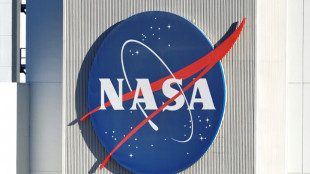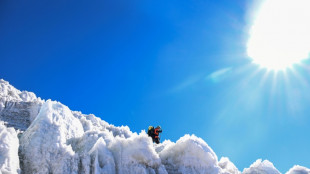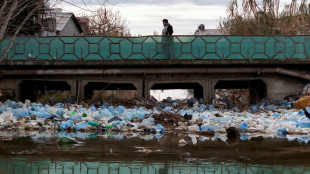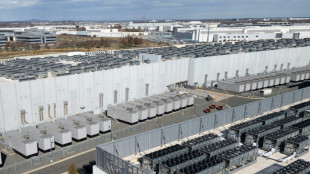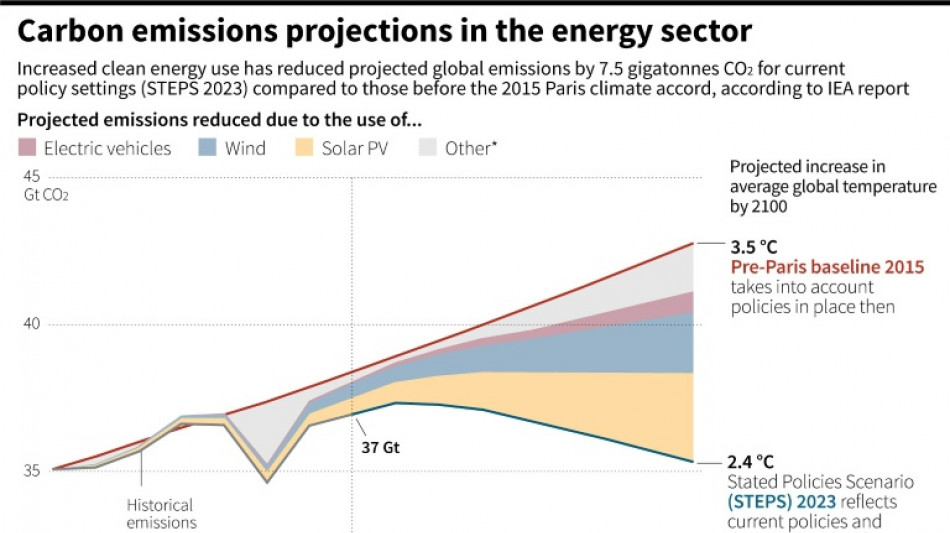
-
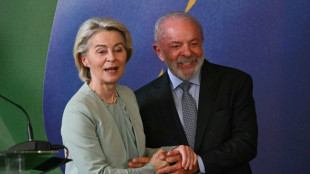 Brazil, EU hail trade deal as victory for multilateralism
Brazil, EU hail trade deal as victory for multilateralism
-
'Nothing's changed' in Gaza as US peace deal enters second phase
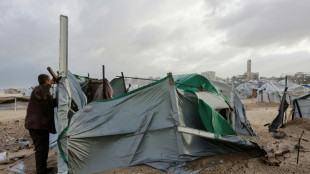
-
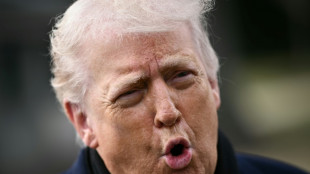 Trump threatens tariffs as US lawmakers back Denmark, Greenland
Trump threatens tariffs as US lawmakers back Denmark, Greenland
-
Swiss fire fatalities not given routine autopsies: lawyers

-
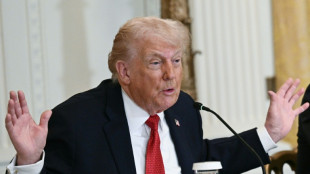 Trump threatens tariffs on nations that don't back Greenland takeover
Trump threatens tariffs on nations that don't back Greenland takeover
-
Trump says 'thank you' to Iran for not hanging protesters
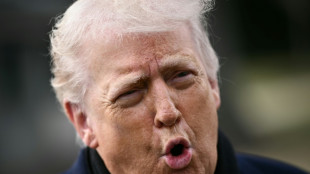
-
 Machado says Venezuela beginning 'transition' to democracy
Machado says Venezuela beginning 'transition' to democracy
-
France PM edges closer to forcing budget through without a vote
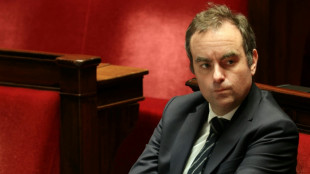
-
 OpenAI introducing ads to ChatGPT
OpenAI introducing ads to ChatGPT
-
Russian inflation drops sharply in 2025
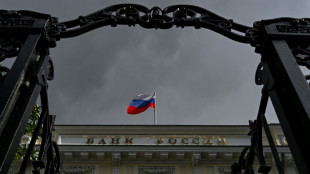
-
 India's Sundar ruled out of New Zealand T20 series
India's Sundar ruled out of New Zealand T20 series
-
Trump threatens tariffs on countries that don't back Greenland takeover plan
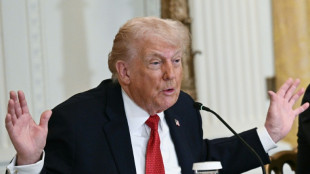
-
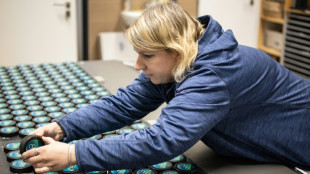 Czech family produces perfect pucks for Olympic ice hockey
Czech family produces perfect pucks for Olympic ice hockey
-
Local UK police chief retires amid Maccabi Tel Aviv fan ban row

-
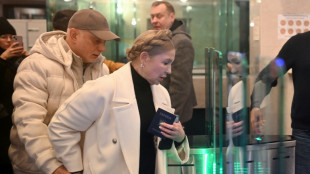 Former Ukraine PM Tymoshenko released on bail in graft probe
Former Ukraine PM Tymoshenko released on bail in graft probe
-
French court's 'cold case' ruling casts doubt on other investigations
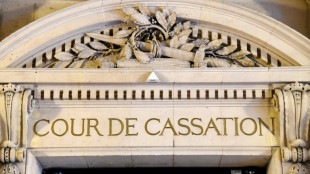
-
 Former world champion Joshua back in gym after horror crash
Former world champion Joshua back in gym after horror crash
-
Italy international Raspadori leaves Atletico to join Atalanta

-
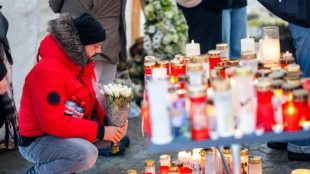 Alpine skiing World Cup races to go ahead in Crans-Montana
Alpine skiing World Cup races to go ahead in Crans-Montana
-
Stock markets take breather at end of turbulent week
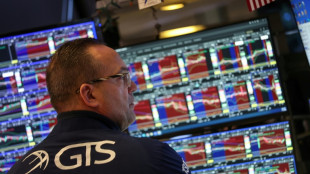
-
 Brabec and Al Attiyah on course for victory at Dakar Rally
Brabec and Al Attiyah on course for victory at Dakar Rally
-
France PM to pass budget without a vote
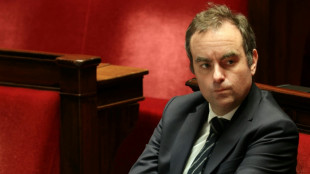
-
 Man City close to Guehi signing: Palace boss Glasner
Man City close to Guehi signing: Palace boss Glasner
-
Machado vows to be Venezuela president 'when the right time comes'

-
 Morocco expects as hosts face Senegal in Cup of Nations final
Morocco expects as hosts face Senegal in Cup of Nations final
-
Ten killed in Ugandan elections, Museveni set to extend 40-year rule

-
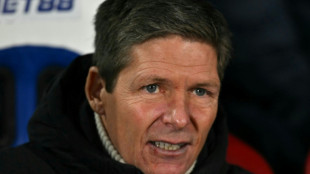 Glasner to leave Crystal Palace at end of the season
Glasner to leave Crystal Palace at end of the season
-
Zelensky hopes for security guarantees plan in looming US talks
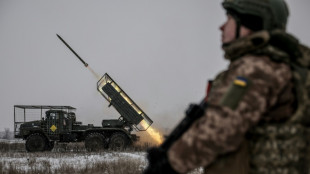
-
 Man City agree deal to sign Guehi: reports
Man City agree deal to sign Guehi: reports
-
US congress members visit Denmark to support Greenland

-
 Italy's Franzoni wins Wengen super-G for maiden World Cup victory
Italy's Franzoni wins Wengen super-G for maiden World Cup victory
-
Palace to face Bosnians Zrinjski in Conference League play-offs

-
 'Nothing for me' with England set-up, says Toulon's Mercer
'Nothing for me' with England set-up, says Toulon's Mercer
-
US congress members in Denmark in support of Greenland

-
 Uganda counting votes amid reports of violence
Uganda counting votes amid reports of violence
-
Stock markets slip with trade deals in focus

-
 Arteta says consistency can fire Arsenal to special season
Arteta says consistency can fire Arsenal to special season
-
Van Nistelrooy to rejoin Dutch coaching team for World Cup
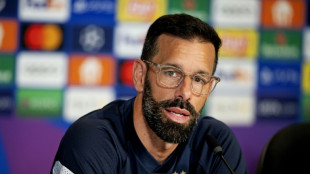
-
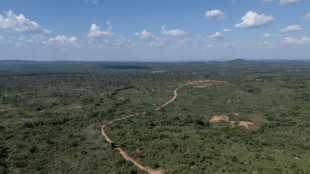 Protected forests under threat in DRC's lucrative mining belt
Protected forests under threat in DRC's lucrative mining belt
-
Iran protest movement subsides in face of 'brutal' crackdown
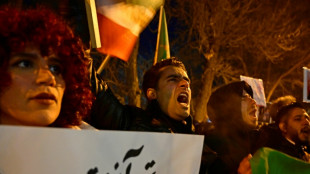
-
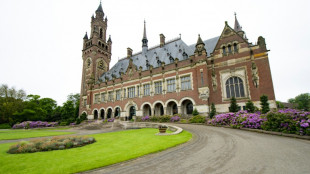 Myanmar tells ICJ Rohingya genocide claims 'unsubstantiated'
Myanmar tells ICJ Rohingya genocide claims 'unsubstantiated'
-
Slot 'happy' to welcome Salah back at Liverpool after AFCON

-
 Experts cast doubt on Burkina Faso's 'foiled coup'
Experts cast doubt on Burkina Faso's 'foiled coup'
-
France says parliament approval of budget 'impossible'
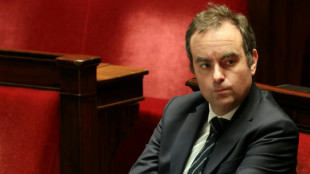
-
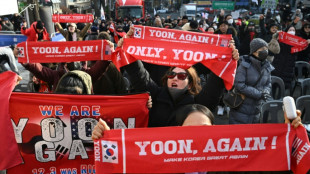 South Korean ex-leader jailed for 5 years in first martial law verdict
South Korean ex-leader jailed for 5 years in first martial law verdict
-
The murky fates of South Korean presidents

-
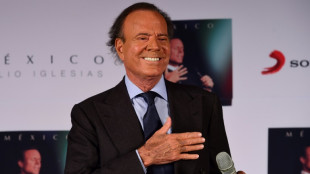 Spanish singer Julio Iglesias says abuse allegations 'absolutely false'
Spanish singer Julio Iglesias says abuse allegations 'absolutely false'
-
'Hobbit houses' that might just save a Moldovan village
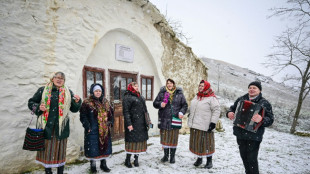
-
 Verstappen motivated as Red Bull braces for F1 changes
Verstappen motivated as Red Bull braces for F1 changes
-
Fraudsters flee Cambodia's 'scam city' after accused boss taken down
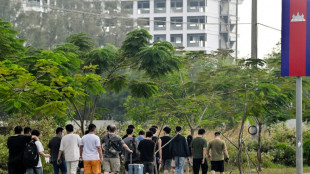

Three positive climate developments
While humanity's efforts to curb planet-warming emissions are nowhere near enough to avoid heating the world to catastrophic levels, tentative improvements show that progress is possible.
The climate trajectory, while still poor, has improved since countries signed the Paris Agreement in 2015 and committed to limiting the global temperature rise to "well below" two degrees Celsius above pre-industrial levels, preferably a safer 1.5C.
And the uptake of renewable energy is providing a rare glimmer of hope.
- Heating -
When the Paris Agreement was adopted, the global reliance on fossil fuels -- oil, gas and coal -- placed the world on a path towards a 3.5C rise in temperature by 2100 compared to the pre-industrial era, the International Energy Agency (IEA) said at the time.
Warming of that scale would prompt catastrophic climate disasters worldwide, including the risk of mass extinctions, the melting of glaciers and permafrost that could eventually unleash metres of sea level rise and unliveable conditions across much of the planet.
Eight years on, country commitments to reduce their carbon footprints have pulled that down slightly, putting the world on a path for a still-disastrous 2.5C to 2.9C by the end of the century, according to the UN's Environment Programme this month.
Every tenth of a degree of warming compounds the negative impacts on the climate, but the modest temperature reduction "reflects progress made in the transition to a lower emissions energy system since 2015", said the IEA.
But it "still falls far short of what is needed", the agency added.
- Peak emissions -
Annual greenhouse gas emissions responsible for climate change have risen roughly nine percent since COP21, according to UN data.
That increase led to record-breaking concentrations of CO2, methane (CH4) and nitrous oxide (N2O) in the atmosphere in 2022, the World Meteorological Organization said last week.
But the rate of the increase has slowed significantly.
The climate experts of the UN Intergovernmental Panel on Climate Change (IPCC) have projected that to meet the Paris goals, emissions need to peak by 2025.
To limit temperature rise to 1.5C emissions need to be slashed almost in half by 2030.
Recent estimates by the Climate Analytics institute find global emissions could peak by 2024 or even as early as this year.
The IEA in its pre-Paris deal assessment predicted that carbon dioxide emissions tied to the energy sector -- responsible for more than 80 percent of CO2 emitted by human activity -- could reach 43 gigatonnes (Gt) in 2030.
But the agency now says that current efforts mean that figure will be 35Gt by 2030.
That difference was "equal to the current combined energy sector emissions of the United States and European Union", it said.
- Rising renewables -
Three technologies -- solar, wind and electric vehicles -- are largely behind the improved global warming estimates since 2015.
"Solar PV is projected to reduce emissions by around three Gt in 2030," the OCED now estimates, "roughly equivalent to the emissions from all the world's cars on the road today."
Wind power is expected to reduce emissions by two gigatonnes in 2030 and electric vehicles (EVs) by around one gigatonne, compared to pre-Paris Agreement scenarios.
Photovoltaics (PVs) and wind power are expected to represent around 15 percent of global electricity production in 2030 - seven times the wind power and three times the PVs that the IEA predicted in 2015.
At the time, fleets of electric vehicles seemed a pipedream. The IEA anticipated that EVs would account for less than two percent of car sales by 2030.
It now estimates that more than a third will be purchases of electric vehicles by the end of the decade.
And the numbers are accelerating. "Clean energy technology adoption surged at an unprecedented pace over the last two years," said the IEA, noting a 50-percent increase in solar PV capacity and a 240-percent rise in EV sales.
The IEA attributes the progress -- unthinkable before the Paris Agreement -- to declining costs and public policy initiatives from China, the United States and Europe among others.
Five-year plans in China have raised ambitions for solar power and driven down global costs.
Off-shore wind projects in Europe "kick-started a global industry" and electric two-wheelers and buses "have seen significant uptake in India and other emerging markets", said the agency.
S.F.Warren--AMWN
